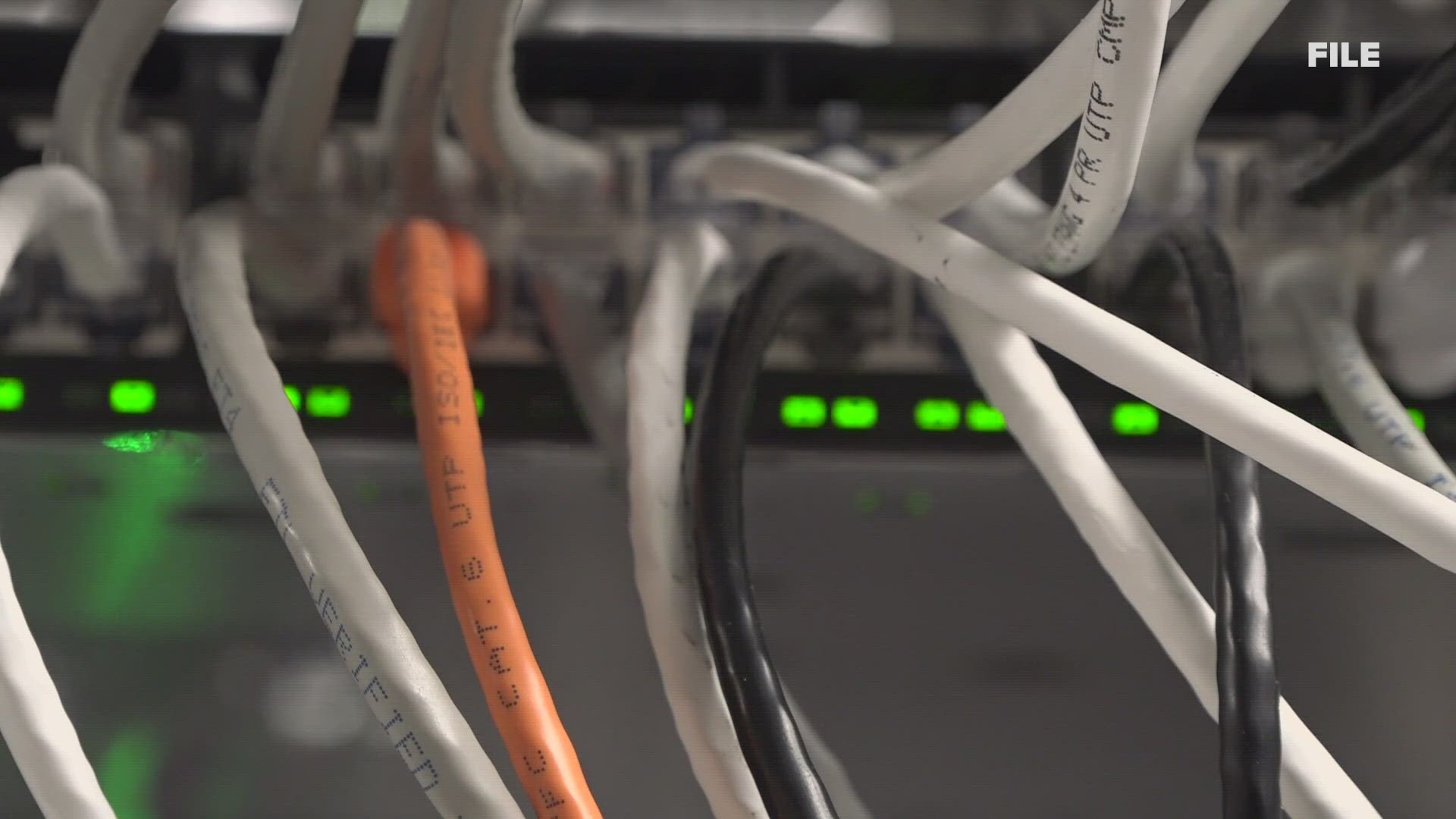MAINE, USA — For decades, having access to high-speed, reliable Internet has been a luxury a lot of Mainers have not known. New federal funding coming into the state, though, could change that.
On Monday, Gov. Janet Mills' office announced Maine is set to receive about $272 million in federal funding over the next five years from the Broadband Equity, Access, and Deployment (BEAD) Program. This grant is funded by the Bipartisan Infrastructure Law, which Senator Susan Collins, R-Maine, helped to negotiate.
"From spurring job creation to supporting telemedicine and education, the Internet unlocks almost endless benefits and possibilities," Collins said in a statement.
"This grant funding is historic in scale, and it will be historic in impact,” Mills also said in a statement, noting this is the largest federal investment related to broadband Maine has ever received.
The BEAD program is part of the Biden-Harris Administration's "Internet for All" initiative. The goal is to make sure every household in the United States has access to high-speed internet by 2030.
Andrew Butcher, the president of the Maine Connectivity Authority, said he's confident that will be able to happen, despite the fact that 15 percent of Maine has no Internet connection at all right now.
"Maine's allocation of funding, I believe, is the highest in the Northeast, certainly in the New England states," Butcher said. "Again, we have a larger problem and a more difficult problem to solve."
Butcher said that's because of the large space and difficult terrain that makes up the Pine Tree State. He said the $272 million is actually more than his team initially expected Maine would receive. For him, it's an indication that this is a turning point in the digital divide.
"This is our societal recognition [that] this is an infrastructure that we are as dependent on as water, as electricity," Butcher said.
NEWS CENTER Maine spoke with Sen. Angus King, I-Maine, on Tuesday. He also played a large role in getting the Bipartisan Infrastructure Law passed. King said he thinks the investment in broadband is the most important project in Maine since the building of the interstate highway.
"It's going to connect seniors to telehealth, kids to schools," King said. "Most importantly, it's going to enable people to work anywhere in the country from anywhere in Maine."
Elizabeth Caruso is the first selectman in Caratunk where reliable Internet is hard to come by. She also works as the broadband director for the Somerset Economic Development Corporation, which partners with the MCA.
"So many times if you're fortunate enough to have DSL, it will drop wireless calls. It's very difficult to take online classes, Zoom meetings," Caruso said, "Everything in life, whether you realize it or not, is connected digitally."
Butcher said now, work begins to determine a plan for the funds. He said there's also still broadband money to spend from the American Rescue Plan Act and other funding sources.
"Whether it's cross-party or cross-agency, there's [a] clear commitment to address the problem and to build the infrastructure for the future," Butcher said.
You can read more about how the Internet for All initiative will affect Maine here.

